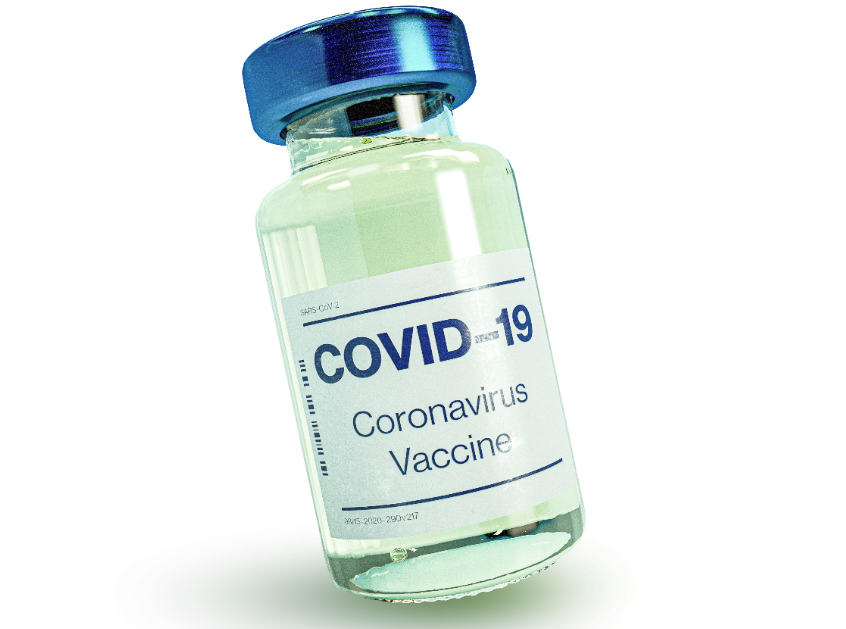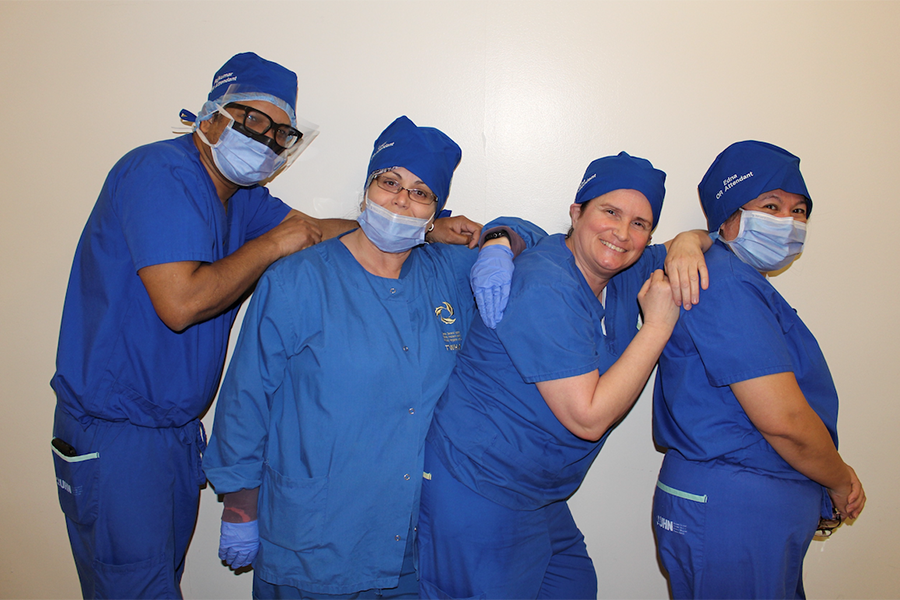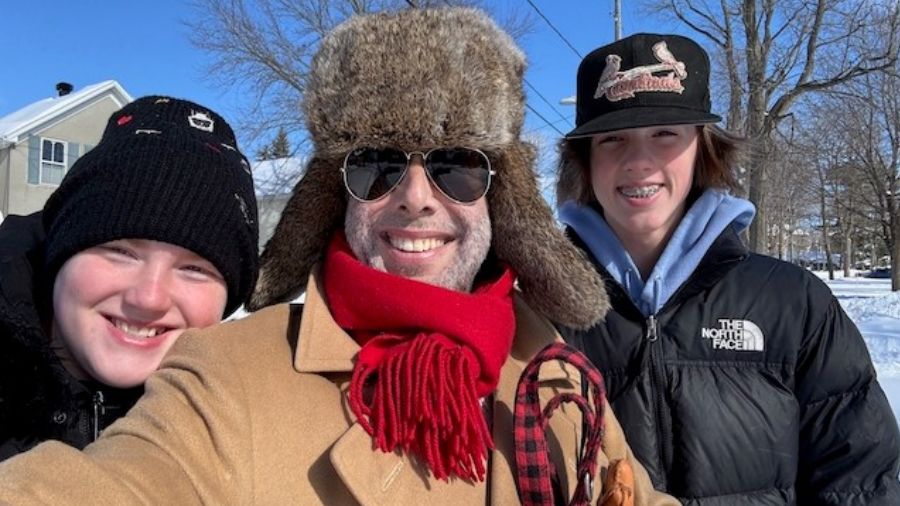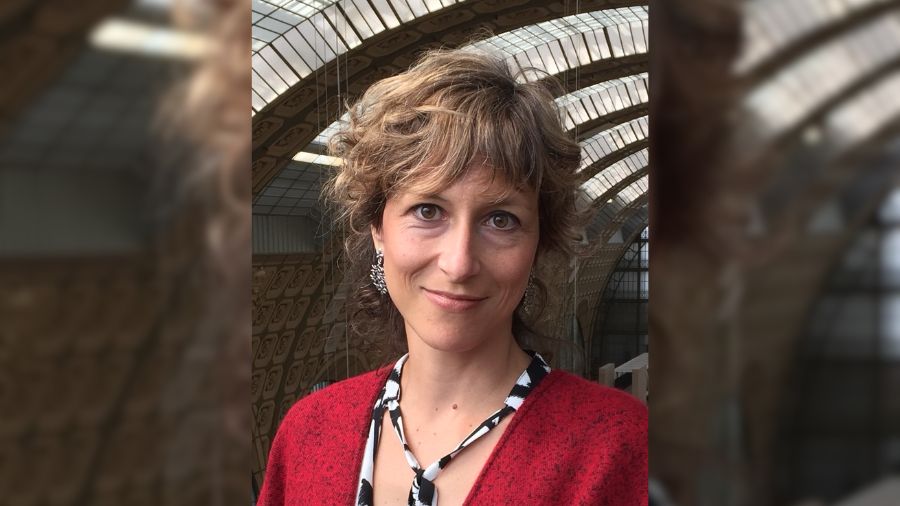Drs. Atul Humar and Deepali Kumar are working to keep transplant patients safe during COVID-19. (Photo: Tim Fraser)
By Glynis Ratcliffe
While the pandemic raged out of control and put the world into lockdown, the Ajmera Transplant Centre’s husband-and-wife team, Dr. Atul Humar, Director of the Centre and the R. Fraser Elliott Chair in Transplantation Research, and Dr. Deepali Kumar, Director of Transplant Infectious Diseases at the Centre and President-Elect of the American Society of Transplantation, was spending countless hours at work trying to keep transplant patients safe from COVID-19.

Over the past year and a half, Drs. Humar and Kumar have developed several innovations and initiatives, all of which have had a global impact on transplant recipients. One major accomplishment – and a world first – was the completion of a randomized placebo-controlled trial of third-dose COVID-19 booster vaccines for these patients, who are especially vulnerable to COVID-19 due to the immunosuppressive medication they need to take. The results, which were published in mid-August in the New England Journal of Medicine, showed the third dose dramatically improved protection against COVID-19. Transplant patients had substantially more antibodies that could neutralize the virus and T-cells that could prevent severe COVID-19.
This had an immediate impact on transplant patients with the Parenteral Drug Association, a global organization that provides education to the pharmaceutical community, recommending a third dose for this population.
Earlier in the pandemic, the two physicians, who have been married for more than 20 years, developed a donor organ screening and testing tool, which allowed organ transplantation to occur safely in Ontario, and were integral in developing Canadian guidelines. They created a COVID-19 screening questionnaire to guide clinicians who receive organ offers about the status of that organ.
The couple also created guidelines to help clinicians around the world determine how to prioritize transplant operations based on the severity of COVID-19 in their region and the impact the pandemic is having on local healthcare systems. The guidance provided an early framework for safely carrying on transplantation in the midst of a pandemic, including suggestions on ramping transplant activity down, and then back up, in response to surges and waves. This protocol was quickly adopted by many centres.
20%
Source: UHN
Percentage of transplants in Canada that are performed at the Ajmera Transplant Centre.
If that wasn’t enough, they also wrote the Canadian Society of Transplantation guidelines for COVID-19 vaccinations in organ transplant patients – such as when the best time may be to vaccinate a patient and how to prioritize them for vaccines. In Canada, initial guidance was that transplant patients should not receive the vaccine, but Drs. Humar and Kumar advocated strongly for this population. “There was hesitancy about vaccinating transplant patients because there was no data,” Dr. Kumar explains. “But we knew from 20 years of experience studying vaccines that this vaccine was likely to be safe and should be given.”
When Drs. Humar and Kumar aren’t busy helping people, they are receiving accolades. Last winter, they earned the Transplantation Champion Award from the Trillium Gift of Life Network (TGLN) for their groundbreaking work. It’s one of the most prestigious transplant-related honours; TGLN, the organization that coordinates organ and tissue donations and transplantation in Ontario, has given out this award just seven times before. “It’s an honour to get this award and to share it with somebody who you can bounce ideas off of without actually setting up a formal meeting,” Dr. Kumar jokes. “Our offices are beside each other, so when we’re at work, we’re always walking into each other’s offices.”
Drs. Humar and Kumar are formidable transplant researchers in their own right, but together they’ve proven to be an unstoppable force. Both credit each other, their marriage and their three children for where they are today and for making monumental strides for the Ajmera Transplant Centre during the pandemic. “It helps that the two of us could support each other and work on ideas and really get through this together,” Dr. Humar says.


